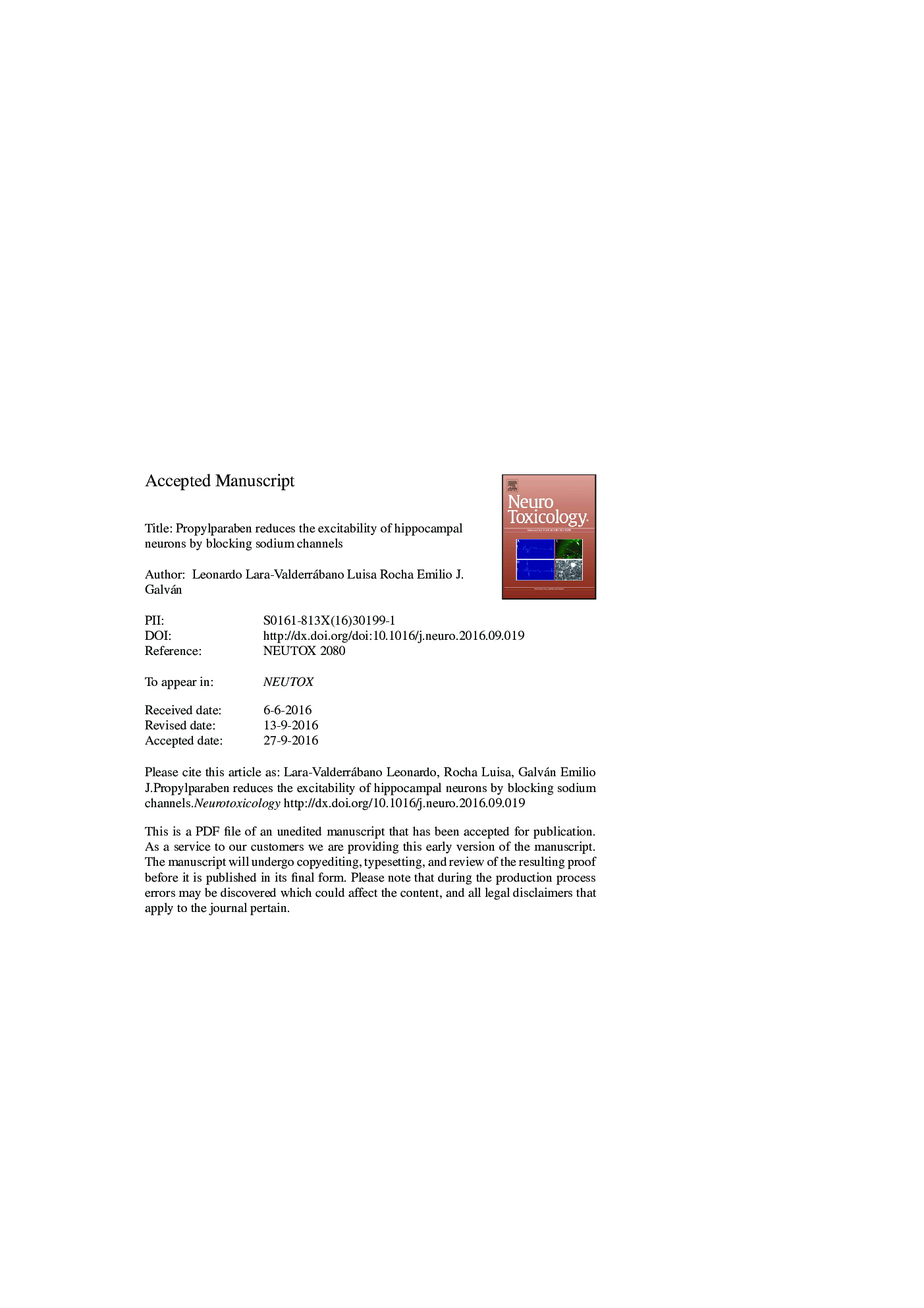| کد مقاله | کد نشریه | سال انتشار | مقاله انگلیسی | نسخه تمام متن |
|---|---|---|---|---|
| 8550475 | 1562037 | 2016 | 42 صفحه PDF | دانلود رایگان |
عنوان انگلیسی مقاله ISI
Propylparaben reduces the excitability of hippocampal neurons by blocking sodium channels
ترجمه فارسی عنوان
پروپیل پاراپن باعث افزایش تحریک پذیری نورون های هیپوکامپ توسط مسدود کردن کانال های سدیم می شود
دانلود مقاله + سفارش ترجمه
دانلود مقاله ISI انگلیسی
رایگان برای ایرانیان
کلمات کلیدی
موضوعات مرتبط
علوم زیستی و بیوفناوری
علوم محیط زیست
بهداشت، سم شناسی و جهش زایی
چکیده انگلیسی
Propylparaben (PPB) is an antimicrobial preservative widely used in food, cosmetics, and pharmaceutics. Virtual screening methodologies predicted anticonvulsant activity of PPB that was confirmed in vivo. Thus, we explored the effects of PPB on the excitability of hippocampal neurons by using standard patch clamp techniques. Bath perfusion of PPB reduced the fast-inactivating sodium current (INa) amplitude, causing a hyperpolarizing shift in the inactivation curve of the INa, and markedly delayed the sodium channel recovery from the inactivation state. Also, PPB effectively suppressed the riluzole-sensitive, persistent sodium current (INaP). PPB perfusion also modified the action potential kinetics, and higher concentrations of PPB suppressed the spike activity. Nevertheless, the modulatory effects of PPB did not occur when PPB was internally applied by whole-cell dialysis. These results indicate that PPB reduces the excitability of CA1 pyramidal neurons by modulating voltage-dependent sodium channels. The mechanistic basis of this effect is a marked delay in the recovery from inactivation state of the voltage-sensitive sodium channels. Our results indicate that similar to local anesthetics and anticonvulsant drugs that act on sodium channels, PPB acts in a use-dependent manner.
ناشر
Database: Elsevier - ScienceDirect (ساینس دایرکت)
Journal: NeuroToxicology - Volume 57, December 2016, Pages 183-193
Journal: NeuroToxicology - Volume 57, December 2016, Pages 183-193
نویسندگان
Leonardo Lara-Valderrábano, Luisa Rocha, Emilio J. Galván,
